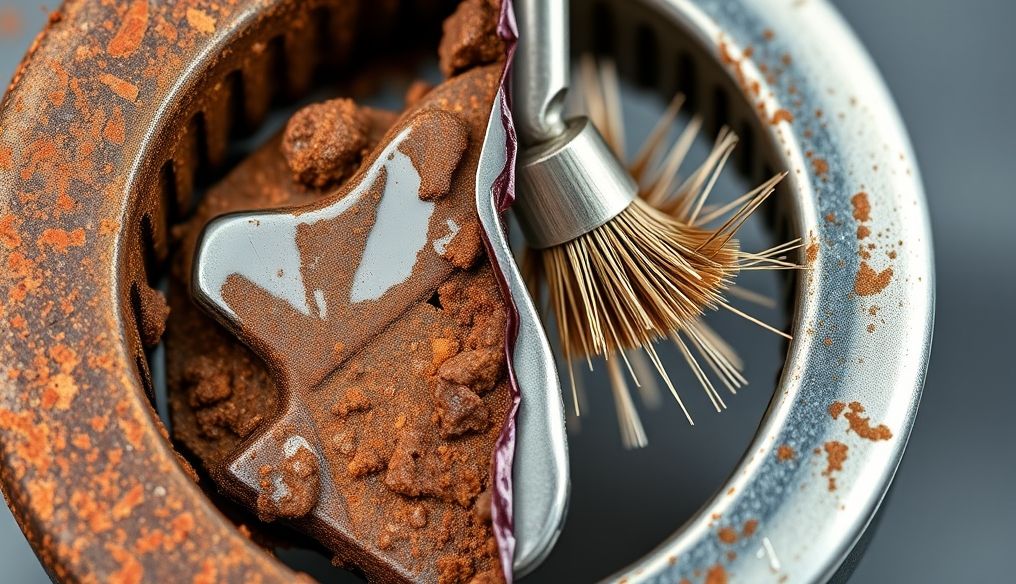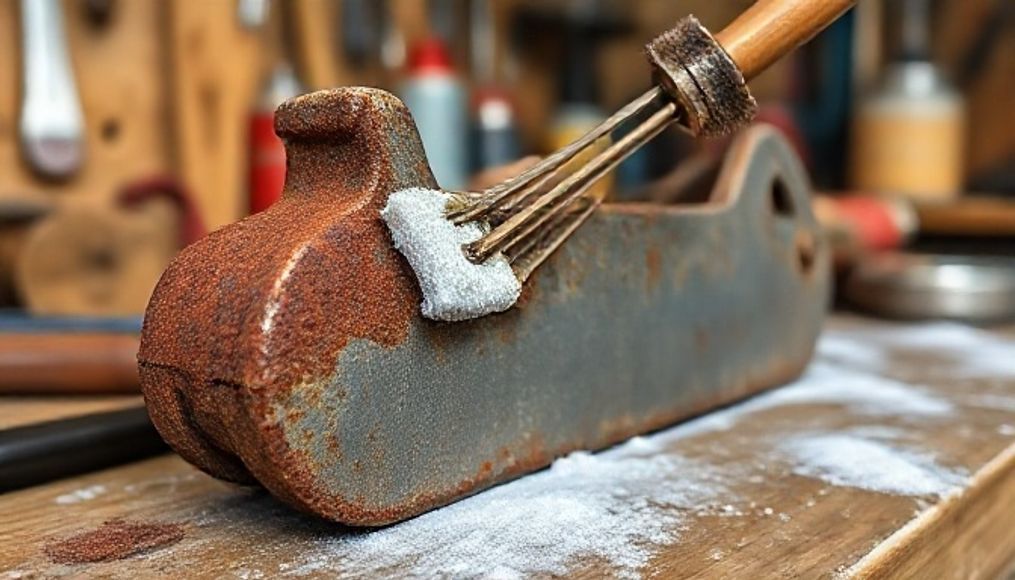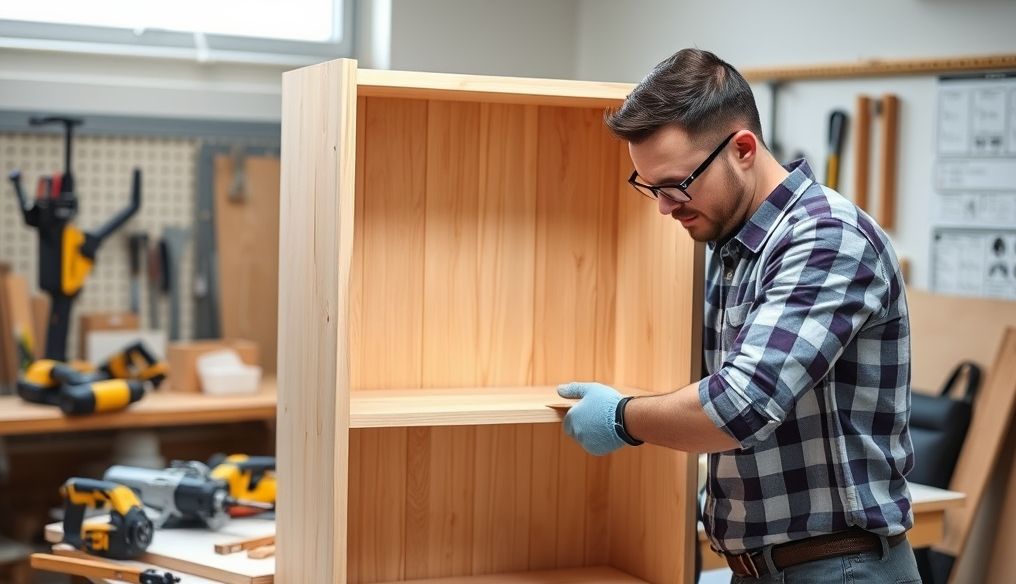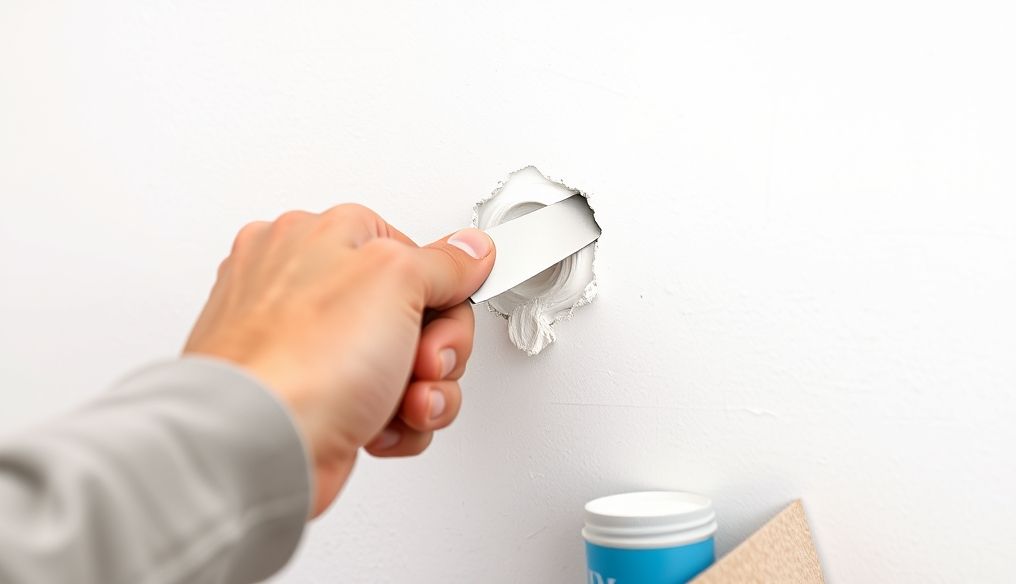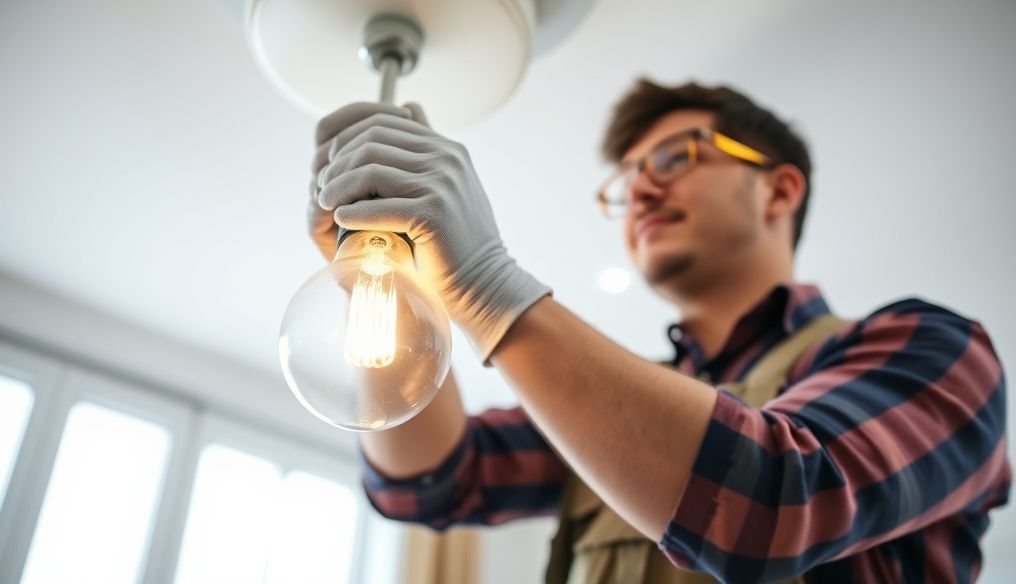What are the easiest and most effective ways to remove rust from metals at home?
Rust, that reddish-brown coating that appears on metal surfaces, is the result of a chemical process called oxidation. It occurs when iron or its alloys (such as steel) react with oxygen and water, leading to the formation of hydrated iron oxide, which we know as rust. The impact of rust is not limited to the aesthetic appearance of metal pieces; it also leads to their corrosion and deterioration, reducing their strength and durability. Therefore, it is essential to remove rust as quickly as possible to protect and preserve metals.
Why Does Rust Form? Understanding the Chemical Process
To understand how to remove rust effectively, it is important to understand the chemical process that leads to its formation. The oxidation process requires three main elements: iron, oxygen, and water (or moisture). When these elements combine, iron atoms lose electrons, leading to the formation of iron ions. These ions react with oxygen to form iron oxide, which in turn combines with water to form hydrated iron oxide (rust). This process accelerates in humid and saline environments.
Essential Safety Precautions Before Starting
Before starting any rust removal process, it is essential to take some precautions to ensure your safety. These precautions include:
- Wearing Gloves: To protect your hands from harsh chemicals and dirt.
- Wearing Safety Glasses: To protect your eyes from flying particles or chemicals.
- Working in a Well-Ventilated Area: To avoid inhaling harmful fumes.
- Wearing a Mask (Optional): If you are working in a dusty environment or using strong chemicals.
Simple Home Methods for Removing Rust
Fortunately, there are many simple and effective home methods for removing rust, using materials available in most households. Here are some of the best methods:
1. White Vinegar: The Effective Acidic Solution
White vinegar is a weak acid but is effective in removing rust. Simply soak the rusty metal piece in white vinegar for a period ranging from a few hours to overnight, depending on the extent of the rust. After that, use a wire brush or a coarse cloth to scrub off the loosened rust. White vinegar can also be used to clean large surfaces by wetting a cloth with it and wiping the rusty surface.
Practical Example: To remove rust from a wrench, place it in a cup of white vinegar for 4 hours, then scrub it with a wire brush.
2. Baking Soda (Sodium Bicarbonate): A Gentle Abrasive
Baking soda is a gentle abrasive that can be used to remove rust without damaging the metal. Mix baking soda with water to form a thick paste, then apply it to the rusty area and leave it for an hour. After that, scrub it with an old toothbrush or a coarse cloth. Baking soda can also be used to clean large surfaces by sprinkling it on the wet surface and scrubbing.
Practical Example: To clean a rusty baking sheet, sprinkle baking soda on it, add a little water, leave it for an hour, then scrub it with a cloth.
3. Lemon and Salt: An Acidic and Abrasive Combination
Lemon and salt are an effective combination for removing light rust. Sprinkle salt on the rusty area, then squeeze lemon juice on it. Leave the mixture for 2-3 hours, then scrub it with a coarse cloth or the lemon peel itself. The salt acts as an abrasive, while the lemon juice acts as an acid that dissolves the rust.
Practical Example: To remove rust from a kitchen knife, sprinkle salt on the blade, squeeze lemon juice on it, leave it for two hours, then scrub it with a cloth.
4. Potato and Soap: An Unconventional but Effective Method
Potatoes contain oxalic acid, which is effective in removing rust. Cut the potato in half, then dip the cut end in liquid soap (the soap acts as an abrasive). Rub the rusty area with the potato, adding more soap as needed. After that, rinse the area with water and dry it.
Practical Example: To remove rust from garden tools, cut the potato in half, dip it in soap, and rub the rusty tools with it.
5. Citric Acid: A Powerful Solution for Stubborn Rust
Citric acid, available in powder form, is a powerful solution for removing stubborn rust. Mix citric acid with warm water (about two tablespoons of acid per cup of water), then soak the rusty metal piece in the solution for up to 24 hours. After that, scrub the loosened rust with a wire brush.
Warning: Wear gloves when using citric acid and avoid contact with skin.
Practical Example: To remove rust from small car parts, soak them in a citric acid solution overnight, then scrub them with a wire brush.
Using Specialized Commercial Products
If home methods do not work in removing rust, or if the rust is severe, you can resort to specialized commercial products. Many rust removers are available on the market, which contain strong chemicals that dissolve rust. When using these products, it is essential to follow the manufacturer's instructions carefully, wear gloves and safety glasses, and work in a well-ventilated area.
- Liquid Rust Removers: Applied directly to the rusty surface, left for a period of time, and then scrubbed.
- Gel Rust Removers: Ideal for use on vertical surfaces, as they adhere to the surface for longer.
- Rust Converters: Convert rust into a protective layer that prevents further corrosion.
Mechanical Methods for Removing Rust
In addition to chemical methods, rust can also be removed mechanically using tools such as:
- Wire Brush: For removing surface rust.
- Sandpaper: For removing light to medium rust. Start with coarse sandpaper, then switch to finer sandpaper for a smooth surface.
- Angle Grinder: For removing severe rust from large surfaces.
- Sandblasting: An effective method for removing rust from complex or hard-to-reach surfaces.
Warning: Wear safety glasses and a mask when using mechanical tools to remove rust.
How to Prevent Rust Formation in the Future
After removing rust, it is important to take steps to prevent it from forming again. These steps include:
- Painting Metal Surfaces: Paint provides a protective layer that prevents oxygen and water from reaching the metal.
- Oiling Metal Surfaces: Oil prevents moisture from reaching the metal.
- Storing Tools and Equipment in a Dry Place: Reduces their exposure to moisture.
- Using Rust-Resistant Materials: Such as stainless steel.
- Regular Cleaning: Removing dirt and salts that can accelerate the oxidation process.
Conclusion: Rust is Not the End of the World
Removing rust from metal surfaces is not an impossible task. By using simple home methods or specialized commercial products, you can restore the shine of your metal pieces and preserve them for years to come. Always remember to take the necessary safety precautions, follow the instructions carefully, and take steps to prevent rust from forming in the future.
Frequently Asked Questions About Rust Removal
- Can Coca-Cola be used to remove rust? Yes, Coca-Cola contains phosphoric acid, which can help break down light rust. Soak the metal piece in Coca-Cola for a few hours, then scrub it with a wire brush.
- Can toothpaste be used to remove rust? Yes, toothpaste can be used as a gentle abrasive to remove surface rust. Apply it to the rusty area, scrub it with an old toothbrush, then rinse it with water.
- What is the best way to remove rust from delicate items? Use a gentle method such as baking soda or lemon and salt, and avoid using strong chemicals or harsh mechanical tools.
- Can rust be removed from painted surfaces? Be careful when removing rust from painted surfaces, as it can damage the paint. Use a gentle method such as baking soda or a soft cloth dampened with diluted white vinegar.
- When should I consult a rust removal specialist? If the rust is severe or spread over a large area, it may be best to consult a rust removal or metal restoration specialist.
